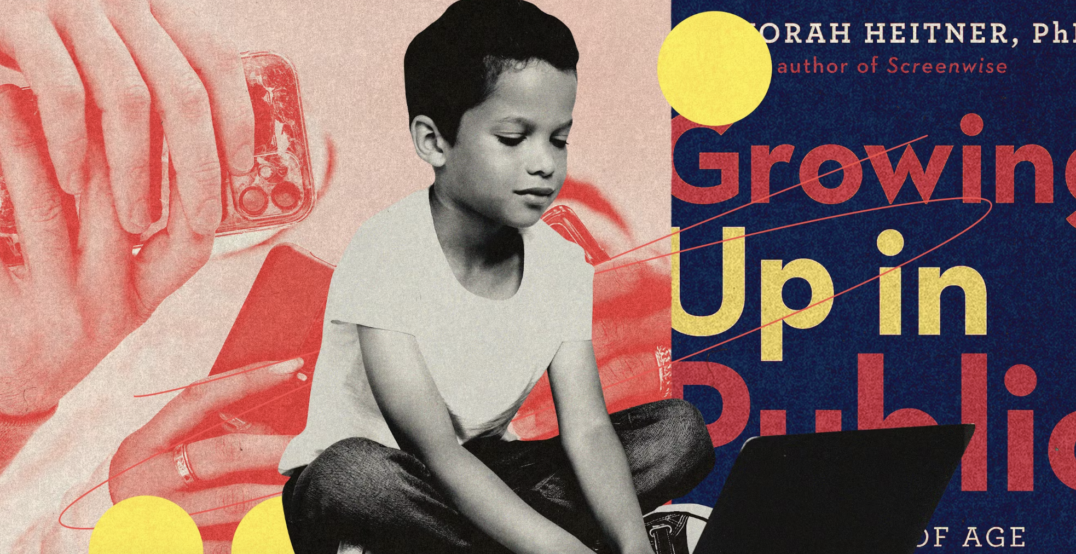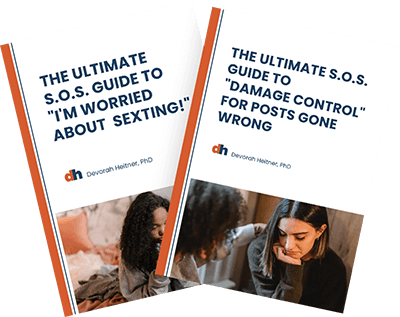For the past week, I’ve been hearing from parents who are wondering if they should take TikTok or YouTube off their kids’ devices to prevent them from seeing atrocities. If you have a 15-year-old who has been using YouTube and TikTok for a couple of years—simply erasing the app from their phone is no substitute for important conversations. Mentoring is more effective than simply monitoring. Or trying to “edit” the Internet.
Keeping them in a bubble is not a realistic strategy
When our kids if we can keep the scary news away from them, it is great to wait till they are a bit older and have more emotional resources and context to understand things. But with kids who are in circulation with other kids—we have to be proactive. Someone might show your kid something on the bus. Your child could Google a related term on their school Chromebook. We can’t avoid having conversations about this conflict with our kids. I live in a community where I witness every day how this is deeply personal for so many people.
Seeing images of violence directed at people whose identity you share holds some next-level terror. And if you have family or friends living on the front lines, your child might be more likely to see or seek out the kinds of first-person video accounts that bring us vivid and horrific images of war and conflict.
As someone who abhors violence and craves a more peaceful world, I wish that seeing these videos made people in power more sensitive and more reluctant to cause harm. That does not seem to be how human nature works, unfortunately.
There are ways we can teach kids ABOUT what is happening and not show them the videos. We want to prevent trauma, and address it when it happens. So—while I understand why parents are asking: Should You Delete Your Kids TikTok This Week—the bigger question is how do we change the world? And how do we help our kids cope with what they may have seen and avoid being further traumatized by videos and other exposure to violence?
Some other questions worth asking:
What are the responsibilities of the apps themselves to not allow perpetrators to nationally weaponize live-streaming as a method of terror? At the same time, does shutting it down take away an important avenue of documentation for victims and bystanders? How do we use the information we have from these first-person accounts…without becoming numb, desensitized, or traumatized?
One of the fundamental moral assumptions that I grew up with in the late 20th century was that the world would not stand for extremes of violence toward defenseless civilians if there was film or TV footage. But…is that true? We’re more than a decade into cell phone video and social media— and sadly, many people worldwide have stories to tell about video not being enough to bring the world to the point of rescue. I wish I had answers.
A few thoughtful resources about how to talk with kids about traumatic events:
How to Talk With Kids About the War in Gaza and Israel — by Maryam Abdullah Parents can prepare themselves to have difficult conversations with children about humanitarian crises.
From the Southern Poverty Law Center: Handle With Care: Supporting Young People During Crisis this is a resource “for families and educators who must respond to the needs of children as a traumatizing event unfolds.”
NPR Lifekit In this episode of Life Kit, NPR’s Becky Sullivan offers advice on how to talk to our children about the violence in Israel and Gaza.
My trusted colleague, psychologist
Dr. Aliza Pressman (creator of the Raising Good Humans Podcast ) spoke to CBS about this tough topic as well.

